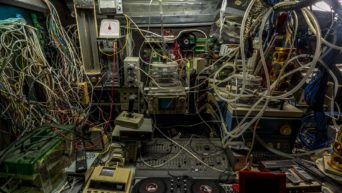Apple engineer indicted for trade secret theft and escape to China exposes the need for safeguarding intellectual property in autonomous systems.
According to the U.S. Attorney for the Northern District of California, a former Apple engineer residing in Mountain View has been indicted on six counts of theft or attempted theft of trade secrets. Weibao Wang, 35, allegedly stole sensitive information related to autonomous systems during his time at Apple and subsequently fled to China, where he accepted a job offer with a U.S.-based subsidiary of a company developing self-driving cars.
Wang was part of a team at Apple responsible for designing and developing hardware and software for autonomous systems, including self-driving cars. The indictment specifies six categories of trade secrets that Wang is accused of stealing or attempting to steal, ranging from the entire autonomy source code to descriptions of hardware systems and motion planners for autonomous systems.
Apple discovered the breach after Wang’s departure in April 2018 when they noticed that he had accessed significant amounts of proprietary and confidential information in the days leading up to his resignation. Law enforcement subsequently searched Wang’s residence and found substantial quantities of data taken from Apple just prior to his departure. It was later revealed that Wang had purchased a one-way ticket to China and boarded a flight the same day as the search for his home.
If convicted, Wang could face a maximum sentence of 10 years in prison and a fine of $250,000 for each count of theft or attempted theft of trade secrets. The case is being handled by the Special Prosecutions Section of the United States Attorney’s Office for the Northern District of California.
The cases detailed at a Justice Department press conference centered on allegations concerning the theft of trade secrets and other technology. #Apple #JusticeDepartment https://t.co/ybNH8vIK6f
— Express Technology (@ExpressTechie) May 17, 2023
Wang’s case is part of a broader effort by the Disruptive Technology Strike Force, a unit established by the Departments of Justice and Commerce, to combat attempts by foreign nation-states to acquire sensitive U.S. technology illicitly. This particular initiative has resulted in five cases and four arrests thus far, including two cases involving former software engineers accused of stealing software and hardware source code to market it to Chinese competitors.
The remaining two cases involve the disruption of alleged procurement networks assisting the Russian military and intelligence services in acquiring sensitive technology in violation of U.S. laws, as well as a Chinese procurement network suspected of providing materials used in weapons of mass destruction and ballistic missiles to Iran.
The charges against Wang and the other individuals involved highlight the importance of safeguarding intellectual property and preventing unauthorized access to trade secrets, especially in industries as competitive and technologically advanced as autonomous systems and self-driving cars.
































